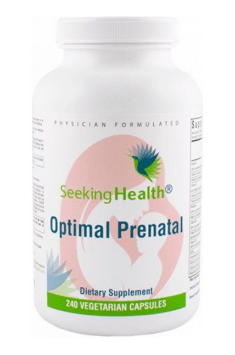While some say ‘tiger stripes’ should be proudly worn after giving birth, it’s understandable that most mums-to-be desperately search the web for answers on how to prevent stretch marks. Various lotions and oils promise the world claiming to protect your skin, but do they actually work?
How do stretchmarks form?
When the skin rapidly expands during pregnancy, the connective tissue in the dermis (the middle layer of skin) tears, allowing deeper layers of skin to show through to the surface. As a result, red lines appear and although they may fade over time, the tears do not fully heal.
Do moisturisers actually help?
Providing a combination of water and oil, skin moisturisers generally only reach the epidermis, the outermost layer of your skin. While this can be very useful at reducing itchy dry skin and improving skin elasticity on the surface, this alone is unlikely to prevent stretchmarks.
To maximise the effects of moisturisers or oils, choose one containing pumpkin seed oil or rosehip oil, both excellent sources of antioxidants including vitamin A, C and E which may have beneficial effects for protecting the deeper layers of skin prone to tears. Also, apply these oils to your skin after having a shower or bath to retain as much moisture as possible.
How to choose the best supplement for pregnancy
A good quality prenatal supplement should include nutrients to prevent the development of stretch marks, prevent birth defects, support your baby’s brain development and reduce symptoms of morning sickness. Here are some key ingredients to look out for in a supplement:
Folate / Folic acid
Folate is the natural form of vitamin B9, vital for growth of the spinal cord and brain. Look for supplements containing the most active form of folate called methyltetrahydrofolate. Folic acid is a synthetic form of folate often found in cheaper products.
Ginger root
From ginger tea to ginger sweets, there are many products out there to help manage the symptoms of nausea during pregnancy. A quick easy way to get a high dose of concentrated ginger root is to take a supplement containing ginger.

Zinc
As zinc is required in the process of cell replication, supplementing can give your skin a helping hand to keep up with the fast rate of growth, especially during the last few months of pregnancy. Aim to take 15mg a day.
Protein
Collagen is made from amino acids, so ensure you have adequate protein. Aim to eat around 1g of protein per kg of body weight (e.g. eat 80g of protein if you weigh 80kg) and consider that your weight will increase when you are pregnant, and therefore so should your protein intake. Topping up with a protein powder is an easy way to meet your target.
Vitamin C
Vitamin C is also key in the process of building collagen to strengthen connective tissues. In addition to eating plenty of colourful fruits and vegetables, top up your vitamin C intake with a supplement containing at least 200mg.
Vitamin A
This antioxidant is key for optimal growth of your baby including the heart and lungs, and also for your immune health and skin. It’s important to note that vitamin A in excess can actually be toxic. When supplementing, a dose of 8000IU (1600mcg) is the upper safe intake during pregnancy, and if in doubt, an even safer method of supplementing is to take beta-carotene (found naturally in orange vegetables) as this is converted to vitamin A in the body and cannot reach toxic levels.






